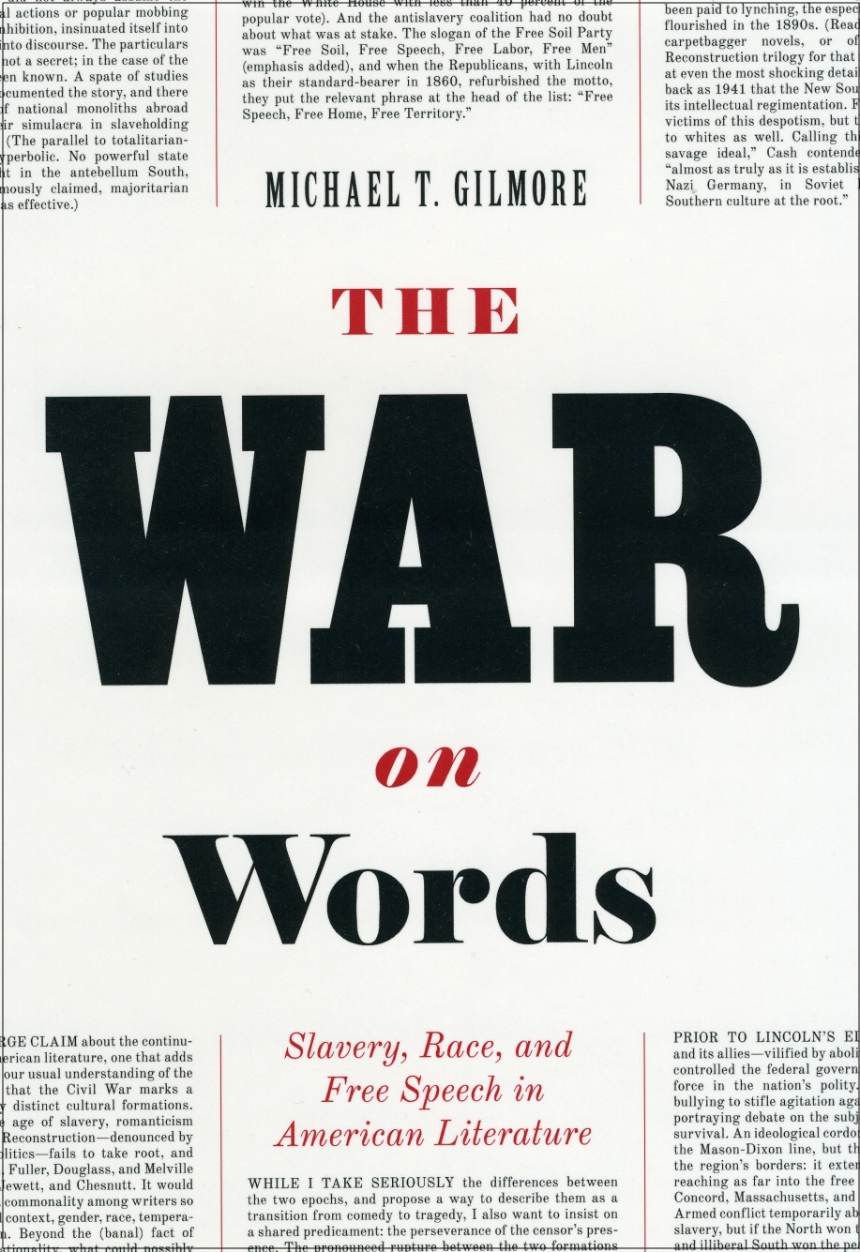The War on Words
Slavery, Race, and Free Speech in American Literature
The War on Words
Slavery, Race, and Free Speech in American Literature
How did slavery and race impact American literature in the nineteenth century? In this ambitious book, Michael T. Gilmore argues that they were the carriers of linguistic restriction, and writers from Frederick Douglass to Stephen Crane wrestled with the demands for silence and circumspection that accompanied the antebellum fear of disunion and the postwar reconciliation between the North and South.
Proposing a radical new interpretation of nineteenth-century American literature, The War on Words examines struggles over permissible and impermissible utterance in works ranging from Thoreau’s “Civil Disobedience” to Henry James’s The Bostonians. Combining historical knowledge with groundbreaking readings of some of the classic texts of the American past, The War on Words places Lincoln’s Cooper Union address in the same constellation as Margaret Fuller’s feminism and Thomas Dixon’s defense of lynching. Arguing that slavery and race exerted coercive pressure on freedom of expression, Gilmore offers here a transformative study that alters our understanding of nineteenth-century literary culture and its fraught engagement with the right to speak.
344 pages | 1 halftone | 6 x 9 | © 2010
History: American History
Law and Legal Studies: Law and Society
Literature and Literary Criticism: American and Canadian Literature
Reviews
Table of Contents
Introduction
Part I: Slavery, Race, and Free Speech
Part II: Antebellum
Emerson: Prospects
Thoreau: Words as Deeds
Fuller: History, Biography, and Criticism
Hawthorne and the Resilience of Dissent
Stowe: From the Sacramental to the Old Testamental
Part III: Antebellum/Postbellum
Speech and Silence in Douglass
Whitman: From Sayer-Doer to Sayer-Copyist
Slit Throats in Melville
"Speak, man!": Billy Budd in the Crucible of Reconstruction
Intertext: "Bartleby, the Scrivener"
Part IV: Postbellum
Tourgée: Margin and Center (with an Addendum on Jackson and the Indian Question)
James and the Monotone of Reunion
Was Twain Black?
Crane and the Tyranny of Twelve
Choking in Chesnutt
Dixon and the Rebirth of Discursive Power
Timeline
Notes
Index
